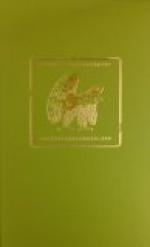Tisdale’s brows contracted. “See here, I want to drive to Wenatchee; what is the best you can do for me?”
“Why, let’s see. My best livery rig is on the Wenatchee road now. One of them High Line fellers hired the outfit with a driver to take him through to the valley. If you’d be’n here when they started, likely they’d be’n glad to accommodate you. And the sorrels is out with a picnic to Nanum canyon. That leaves the roans. They come in half an hour ago. A couple of traveling salesmen had ’em out all the forenoon, and these drummers drive like blue blazes; and it’s a mean pull through to Wenatchee. But wait till to-morrow and, with an early start, you can make it all right with the roans. That’s the best I can do, unless you want a saddle-horse.”
Tisdale walked back to the stalls and, convinced at a glance the jaded roans were impossible for that day, at least, stopped to look over the saddle animals. He saw that there were two promising travelers, but it would be necessary to impress an indifferent third to carry the baggage. Besides, judging from all he had seen, the resources of Kittitas did not include a ready-made lady’s habit. He returned and stood another silent moment watching the lithe, impatient bays. Finally his eyes moved to the entrance and down the road to the railroad station where Miss Armitage was waiting. She was seated on a bench near the door. He could distinguish her gray figure in relief against the reddish-brown wall.
Directly he swung around. “What is your price?” he asked.
Lighter’s hand dropped from the edge of the buggy seat. He stepped back to the heads of his team. “You get in, Harry,” he said. “Drive ’em five or six blocks. Keep your eyes open.”
Harry gathered the reins warily and sprang in; Lighter released his hold, then hurried forward to the driveway and stood with Tisdale watching the team. “Ain’t they a sight?” he said.
And they were. Their coats shone like satin in the sun; they stepped airily, spurning the dust of Kittitas, and blew the ashen powder from their nostrils; then without warning the splendid span was away.
Tisdale repeated: “What is your price?”
Lighter’s shrewd eyes swept his new customer over; it was as though he made an estimate of how much Tisdale could pay. “Five hundred dollars,” he said. “Five hundred—if it’s spot cash.”
“And the outfit?”
“Let me see. Harness is practically new; buggy first-class. I’ll make it an even seven hundred for the whole business; outfit and team.”
There was a brief silence. As a rule, a man drawing the salary of the Geological Survey does not spend seven hundred dollars lightly. He bridles his impulses to own fine driving-horses until at least he has tried them. And this sum, just at that time, meant something of a drain on Tisdale’s bank account. He knew if he bought the Weatherbee tract and reclaimed it, he must hedge on his personal expenses for a year or two; he had even talked with Banks a little about a loan to open the project and keep it moving until the next season’s clean-up, when the Aurora should make good. He stirred, with a quick upward lift of his head, and looked once more in the direction of the station.




